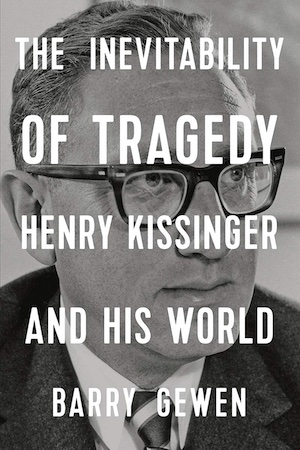By Benjamin Franklin Martin
A cardinal tenet of the “Realist” approach to international diplomacy is the formulation of policy based on considerations of power instead of moral imperatives. For Henry A. Kissinger, first as national security advisor and then as secretary of state between 1969 and 1976, this principle was realized as “détente,” defining the relationship between the United States and the Soviet Union not as an ideological contest between “democratic capitalism” and “totalitarian communism” but as a pragmatic deal between nuclear superpowers. He would later write that he implemented “not a starry-eyed quest . . . but a method for conducting global competition.”
Kissinger’s mentor and the great theoretician of diplomatic realism, Hans J. Morgenthau, argued that this policy of détente had four interlocking aspects: to minimize the chance of nuclear war, to establish a balance of power making conventional war less likely, to recognize and respect the vital interests of both partners, and to encourage peace by linking these vital interests together. Unquestionably, such a policy had the effect of accepting many evils rather than attempting to eradicate them.
But what was the alternative? In the 1960s and 1970s, the potential for a series of crises between the United States and the Soviet Union in the pattern of that over Cuba in 1962, was high. Eventually, a miscalculation would lead to nuclear war. Kissinger was rightly convinced that “time was on the side of the United States, not of the Communist world,” but until the stresses that would undo the Soviets in the 1980s became evident, power had to be balanced, no matter the cost to individual human lives.
Once the great threat from the Soviet Union that détente averted was forgotten, partisans for a crusading foreign policy savaged this Machiavellian end justifying the means. The right accused Kissinger of betraying American interests through compromise with Godless Communists. The left alleged war crimes in the fate of individuals sacrificed to the affairs of state. Neo-conservatives in the middle reasserted America’s Wilsonian ideal of making the world safe for democracy.
These critics also attacked Kissinger’s Vietnam policy. From the middle 1950s until 1968, American leaders, their minds fixed on the doctrine of containment and on avoiding the Munich precedent of abandoning an ally, asked not whether to intervene in Vietnam but how best to do so. After 1968, they asked how to get out and at what cost. Kissinger understood that he was faced with no good choices, only less bad ones. Believing that a precipitous withdrawal would encourage the enemies of the United States around the world, he worked for a phased withdrawal that he recognized would lead to the victory of North Vietnam but that would provide a “decent interval” in which the South Vietnamese government would assume blame for the defeat.
The clearest example of the brutal callousness implicit in realist diplomacy came in American policy toward Chile. Its 1970 presidential election brought to power Salvador Allende, who boasted, “Cuba in the Caribbean and a Socialist Chile in the southern cone will make the revolution in Latin America.” Kissinger replied bluntly, “I don’t see why we have to stand by and watch a country go Communist because of the irresponsibility of its people.” Certainly, Kissinger sought to undermine a democratically elected leader, but Allende’s own failings—inflation in Chile reached 353 percent—were the direct cause of the coup in September 1973 that overthrew him. In 1976, the Senate’s Church committee, unfriendly to Kissinger, could find no direct American involvement. Kissinger himself declared, “Though we had no hand in the military coup, we thought it saved Chile from totalitarianism.”
That comment on the Chilean situation is critical to the portrayal offered in this tightly argued book by Barry Gewen, for thirty years an editor at the New York Times Book Review and a scholar of diplomatic affairs. Gewen places Kissinger with Morgenthau, Leo Strauss, and Hannah Arendt, German-Jewish refugee intellectuals whose experience with the Weimar Republic led them to mistrust democracy because it had not protected them against the Nazis. From the history of the French Revolution, they knew that the Terror called itself the expression of the “people’s rule.” Morgenthau best defined their position on the affairs of state: “Man cannot hope to be good but must be content with being not too evil.” Kissinger’s lament, “nothing is more difficult for Americans to understand than the possibility of tragedy,” is almost the same. Inevitably, opinion about them remains divided.
Benjamin Franklin Martin (ΦΒΚ, Davidson College) is Price Professor of History Emeritus at Louisiana State University; his most recent book is Roger Martin du Gard and Maumort: The Nobel Laureate and His Unfinished Creation (2017).




